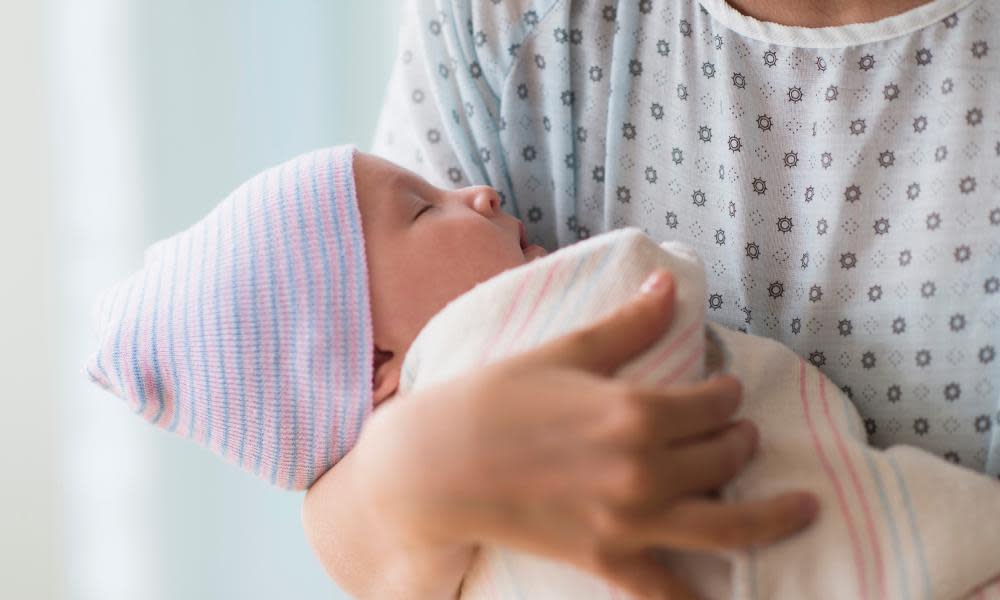New mothers, welcome to a world of guilt

It starts at the beginning, with the little seed in the stomach, the seed that asks if it’s OK to eat crisps any more, or mayonnaise, or Philadelphia. As the seed gets bigger so do the questions. Am I allowed to jog, to do Bikram yoga, to carry heavy loads of tile grout, mulch or washing? Other voices join in. Your mother tells you not to sit like that because it will harm the baby; she asks you suspiciously if you’ve been doing the yoga. Aunties, grandmothers, sisters, midwives and random strangers on buses join in, offering specific and multifarious advice on achieving maternal perfection, which has become your life’s central purpose – and if it hasn’t, why not?
When a foetus starts living in a woman’s body, the woman moves into the house of guilt. It’s quite a big house. Actually, it’s more like a church, with pamphlets about breastfeeding and folic acid and child developmental psychology along the pews, and the latest parenting bibles in those slots on the back of the chairs, and a choir composed of crooning, straight-backed members of the many institutions invested in her success and wellbeing, such as the World Health Organization and the Royal College of Midwives.
The latest hymn on the RCM’s song sheet is a much-lauded pledge to stop making women feel bad for not breastfeeding. From now on, in maternity wards, exhausted members of the congregation of the church of guilt will be told by midwives that, although breast is of course best for the first six months because it can prevent infections and allegedly reduce the risk of obesity and so on, it’s OK if you decide to bottle-feed your child instead, and here’s some advice on how to do it.
It’s curious to me that it’s taken the drawing up of a whole official press release, and a week of ensuing media shouting, to make what seems like such an obvious point. It suggests that a culture of overbearing instruction and judgment remains deeply entrenched in the institutional approach to childbirth and motherhood in this country, and indeed elsewhere. For instance, a study published this week, conducted in the US and Switzerland, blames “helicopter parenting” in the toddler years for causing behavioural problems later in life. In examining the impact of over-controlling parents on their children’s characters and futures, it appears, interestingly, to have used only mothers in its research, not fathers.
For there are usually no men in the congregation of the church of guilt. There are lots in the choir, doctors and such, and many more waiting outside for their partners, as if all this were none of their business. Old-fashioned gender roles are implied from the start.
“Shortly after the birth,” as Rebecca Asher observes in her book Shattered: Modern Motherhood and the Illusion of Equality, “parents are cruelly separated and the burden of care is placed on the mother”.
It’s the same at weekday playgroups and infant swimming lessons: few dads, which means that men are generally less exposed to the bullets of shame flying at mothers from all directions (your child is not talking, walking, feeding or smiling right; your child cries too much; your child smashed his face in while tripping out of the car when you were trying to unfold the pram).
It’s because our society has still not fundamentally let go of, or moved on from, the traditional patriarchal child-rearing setup that parental guilt is most often maternal guilt.
Rather than feeble press releases and accusatory new studies, an entire shift in approach is required that centralises responsibility equally between both parents. An increase in state-subsidised childcare and feasible paternity leave are one way of achieving this; another would be a relaxing of the conventions around the male presence before, during and after the birth.
Anyway, whether or not you are offered advice on bottle-feeding on the postnatal ward will be largely down to your midwife and how much time she has to fill out a form stating that she’s advised you of the superior benefits of breastfeeding and you’ve still decided not to go for it, thus allowing her to “respect your choice”. I was told many things by my rushed and harried midwives, such as not to drive for a month after having my caesarean section, not to lift heavy objects and, oddly, not to hoover. I didn’t and couldn’t take heed of all of it. In that misty haze of post-birth stupor, with the foetus moved out yet my body on call, my mind, my right to choice, was the one thing that solely belonged to me. I held on to it for dear life. I listened to it. Renounced, disregarded, disobeyed. Reader, I hoovered.
• Diana Evans is a journalist and the author ofOrdinary People

 Yahoo News
Yahoo News 
